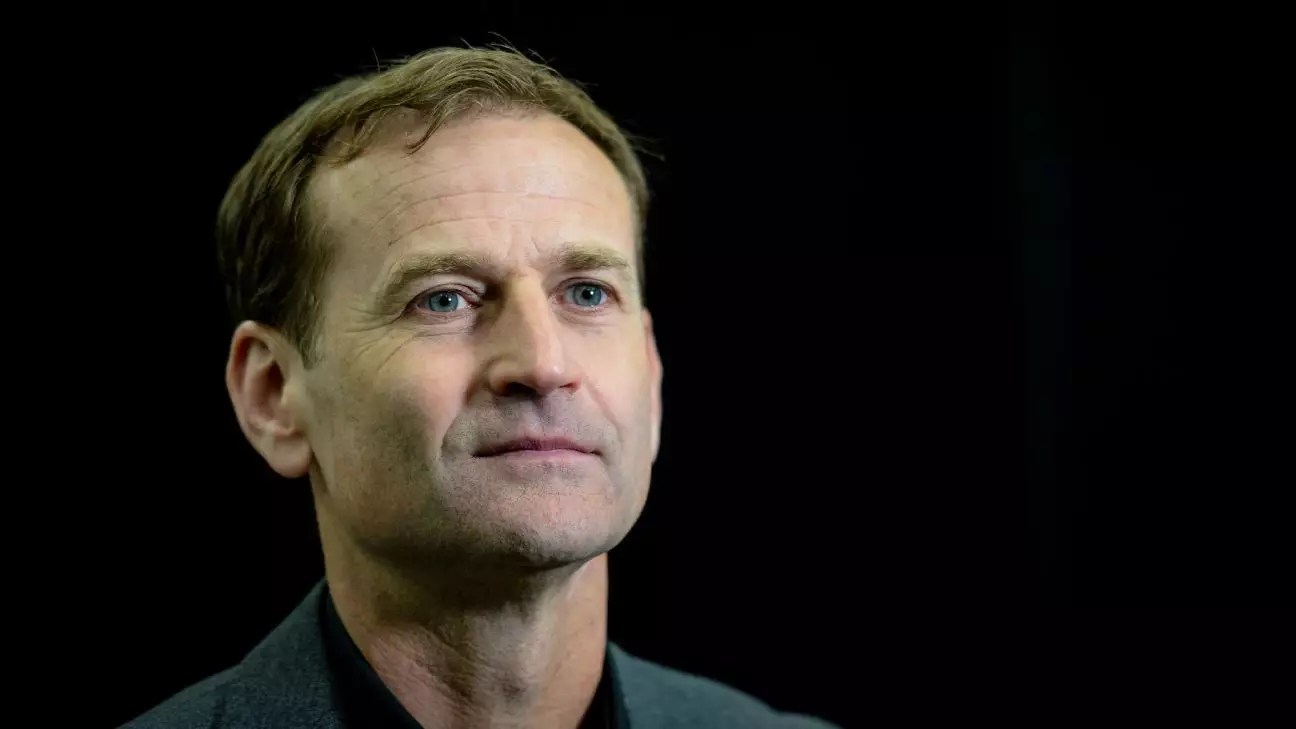The landscape of football management can shift dramatically in a matter of days, as evidenced by the recent upheaval surrounding Dan Ashworth. His departure from Manchester United after only a short stint has raised questions not only about his future but also about the strategic moves of Arsenal, who are reportedly considering him as a candidate for their vacant sporting director position. While some may view Ashworth’s abrupt exit as a damning indictment of his capabilities, it is crucial to recognize the complexities inherent in administrative roles within the high-stakes environment of top-tier football.
Arsenal finds itself in a unique position following Edu’s resignation from the sporting director role. The club is currently without a succession plan, which is a predicament that highlights a potential oversight in governance. Despite the lack of urgency to fill the role immediately—especially with a relatively quiet January transfer window anticipated—the Gunners are nonetheless aware that a competent and familiar figure like Ashworth could bring valuable experience and knowledge to their operations. Ashworth’s prior relationships within the football community, particularly with Arsenal’s managing director Richard Garlick, could smooth the transition and enhance collaboration.
Despite the controversies surrounding Ashworth at Manchester United, his previous tenures with the Football Association, Brighton, and Newcastle United establish him as a figure of significant accomplishment in the football world. His work with the FA notably contributed to the success of the national team, sourcing talent and facilitating development pathways. Moreover, at clubs like Brighton and Newcastle, Ashworth demonstrated a keen eye for player development and recruitment that has proven essential in the contemporary football economy. While his recent tenure may have tarnished his reputation momentarily, Ashworth’s foundational skills in player assessment and club strategy remain sought after.
Arsenal’s executive team, composed of Garlick, manager Mikel Arteta, and others, faces a daunting task in selecting Edu’s successor. The challenge lies not just in finding a candidate with technical expertise, but also in identifying an individual who can align with the club’s vision and rejuvenate its ethos following Edu’s departure—a figure capable of inspiring confidence and continuity. Moreover, the shadow of Edu’s legacy as a member of the Invincibles squad adds a layer of complexity; the next sporting director must not only have the requisite experience but also an understanding and reverence for the club’s storied history.
As Arsenal navigates this transitional phase, the decisions made will impact not only immediate operational dynamics but also longer-term strategic direction. Engaging with potential candidates globally opens a wealth of possibilities, yet it is vital to ensure that the club’s ethos, leadership, and footballing philosophy remain intact. The story of Ashworth is a reminder that while success can be fleeting, building a robust infrastructure capable of weathering the storms of managerial turnover is essential for any ambitious club aiming for consistent performance at the highest level. As Arsenal continues its search, the hope is that they find a candidate who not only meets the practical requirements but also embodies the values and ambitions that the club and its supporters hold dear.


Leave a Reply